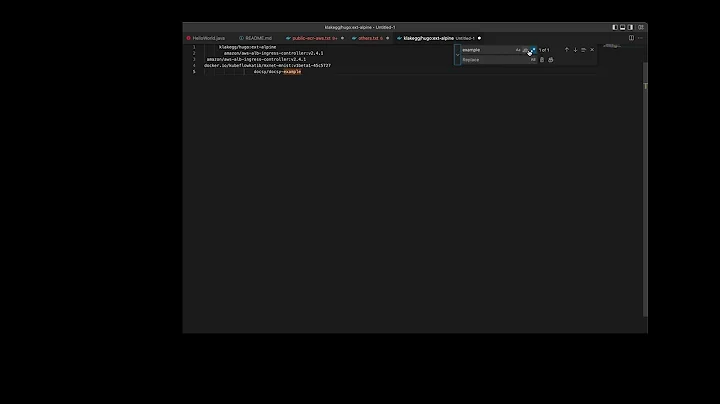regular expression for whitespace in visual studio
12,410
Your regex is wrong. It works only if the \s is preceded by a positive or negative lookahead.
(?:(?=[^\r\n])\s)
What the above regex means is , match a space character but it wouldn't be \n or \r
Explanation:
(?: group, but do not capture:
(?= look ahead to see if there is:
[^\r\n] any character except: '\r' (carriage
return), '\n' (newline)
) end of look-ahead
\s whitespace (\n, \r, \t, \f, and " ")
) end of grouping
OR
(?:(?![\r\n])\s)
You could achieve the same with negative lookahead also.
Explanation:
(?: group, but do not capture:
(?! look ahead to see if there is not:
[\r\n] any character of: '\r' (carriage
return), '\n' (newline)
) end of look-ahead
\s whitespace (\n, \r, \t, \f, and " ")
) end of grouping
Related videos on Youtube
Author by
fatmouse
Updated on June 04, 2022Comments
-
fatmouse almost 2 years
I'm using regular exprssion to help find/replace in Visual Studio 2012.
According to msdn,
(?([^\r\n])\s)match any whitespace character, except line break.But i don's understand how it works in detail.
I only know
[^\r\n]exclude line break,\smatch any whitespace.The outside
(?)confuse me, can not find anything about it on msdn.Can someone explain it? Or give me a link to consult.
-
barak manos over 9 yearsThe question mark indicates there is zero or one of the preceding element. The concept of regular expressions has nothing to do with Visual Studio. You can read more about it at en.wikipedia.org/wiki/Regular_expression.
-
fardjad over 9 yearsLook for (positive) look ahead.
-
-
 Tyress over 9 yearsWell it's not his Regex, it's MSDN's msdn.microsoft.com/en-us/library/2k3te2cs.aspx
Tyress over 9 yearsWell it's not his Regex, it's MSDN's msdn.microsoft.com/en-us/library/2k3te2cs.aspx -
fatmouse over 9 yearsI guess (?=expression) is the same as (?expression) I should focus on .net regex.




